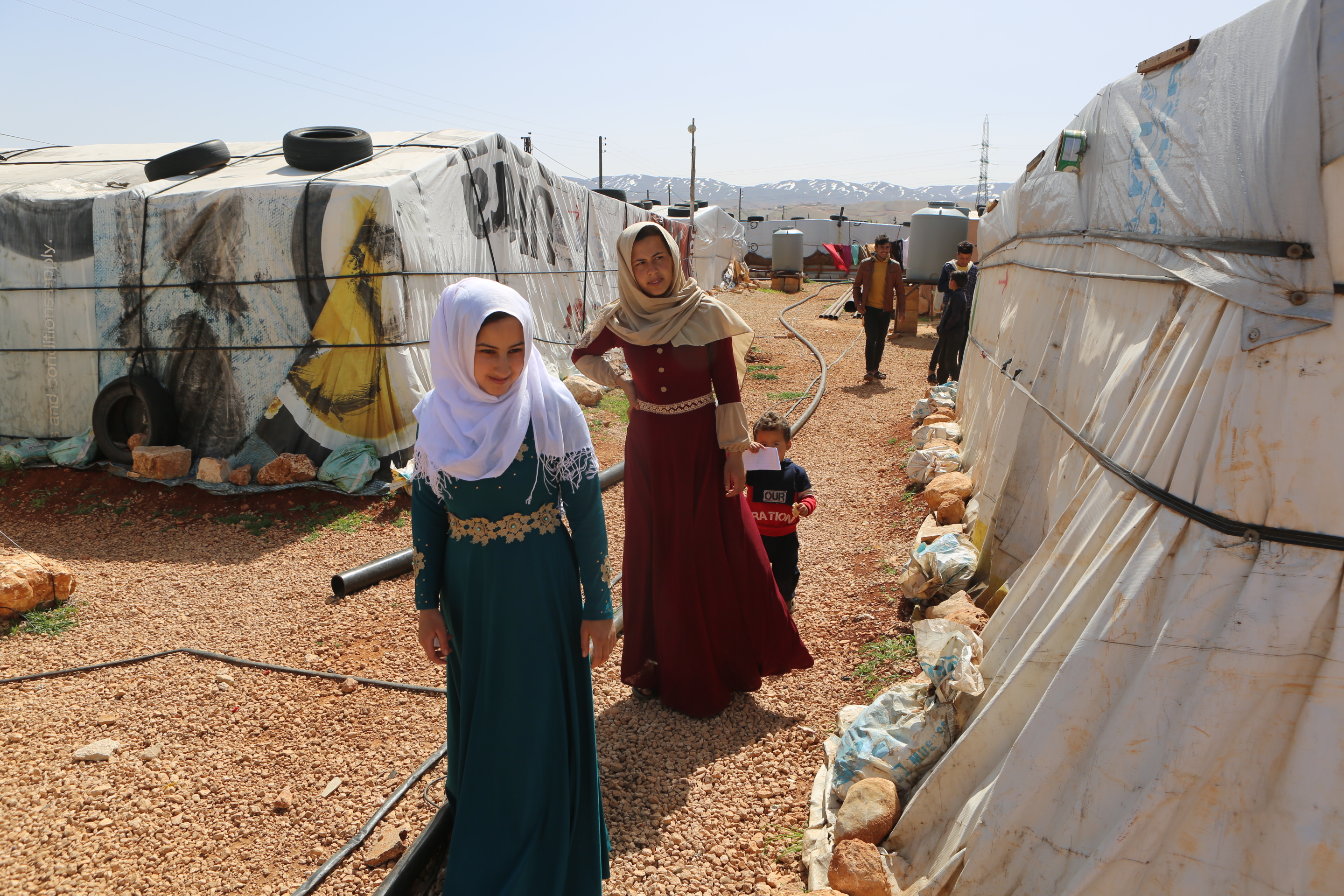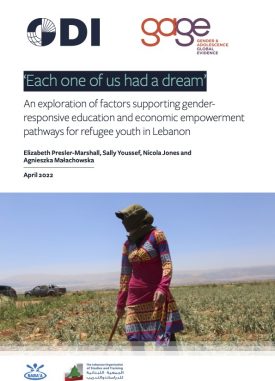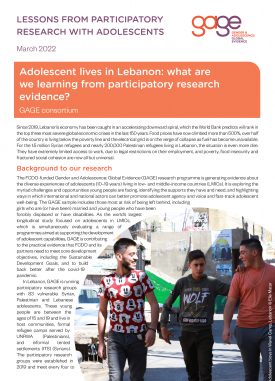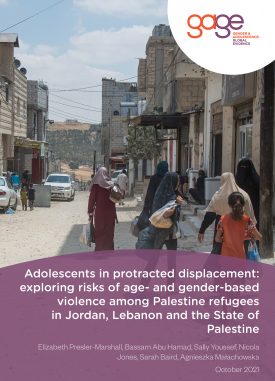Please confirm your attendance via email to Sally Youssef at s.youssef.gage@odi.org
Adolescents in crisis-stricken Lebanon, amid a global pandemic, are facing growing challenges to their overall well-being, including their psychosocial well-being. With increasing socioeconomic vulnerabilities and shrinking opportunities, and the ever more fragile education sector, adolescents’ education is increasingly at risk. The country’s compound crisis is taking a heavy toll on adolescents’ mental health and psychosocial well-being.
Major insecurity and hyperinflation, within a turbulent political and socioeconomic environment, is negatively impacting adolescents’ movement in the community and their overall psychosocial well-being. Adolescents, and especially girls – who already experienced restrictions on their movement and limited access to public spaces and peer support even before the crisis – are now even more isolated. Isolation and mental health problems have been increasing among adolescents and young people as a direct result of the pressures caused by the economic crisis. Adolescents also increasingly report feeling powerless and less hopeful of taking part in any meaningful processes to change their lives.
GAGE study in Lebanon involves more than 100 older adolescents and young people from Syrian and Palestinian refugee communities and vulnerable Lebanese host communities. GAGE’s sample includes the most vulnerable groups, such as out-of-school adolescents (or those at risk of dropping out), working adolescents, married adolescents (or those at risk of early marriage), and adolescents involved with or at risk of joining the armed forces.
Drawing on findings from the GAGE’s programme generated from group and individual interviews with adolescent girls and boys in Lebanon between 2019 and 2022, the event focuses on Lebanese, Palestinian, and Syrian adolescents’ access to education and learning, their opportunities to exercise voice and agency, and their psychosocial well-being – by focusing on adolescents’ lived experiences amid the turbulent and deteriorating socioeconomic and political environment.
Please confirm your attendance via email to Sally Youssef at s.youssef.gage@odi.org



